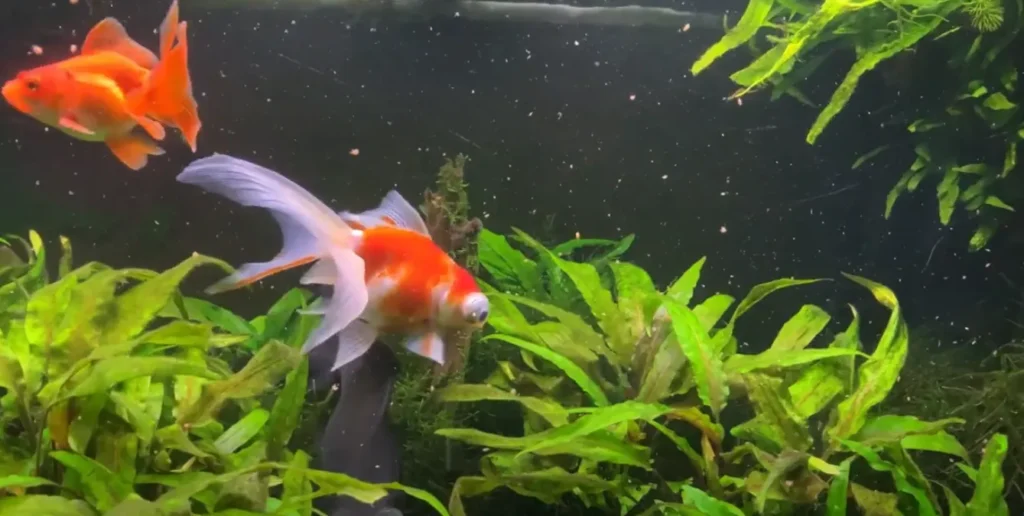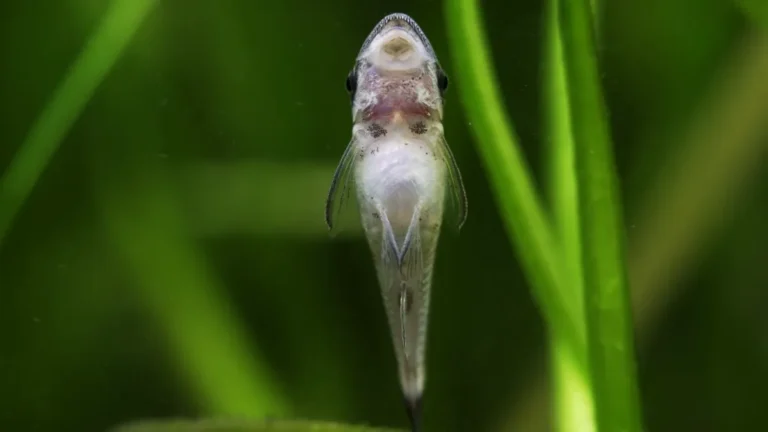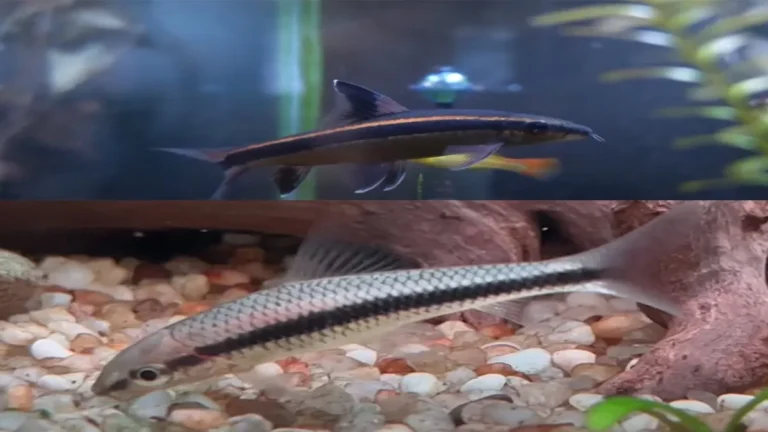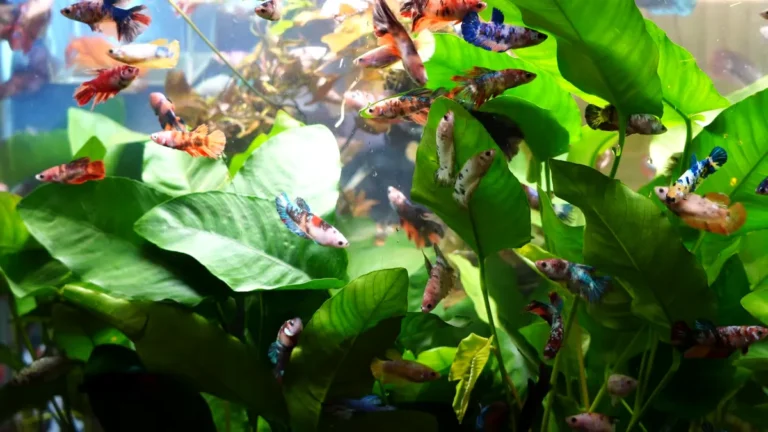Will Cold Water Kill Goldfish?-[Explain]
Goldfish have been mesmerizing us for ages with their vibrant colors and quirky behaviors, but their well-being is a top priority. Today, we’re taking a splashy adventure through the chilly waters of goldfish care to explore how water temperature impacts these aquatic darlings.
So, gather ’round and bring your fishnets (not that kind!), because we’re about to dive into the heart of this splashy mystery. Join me as we discover the truth about cold water and its effects on our beloved goldfish. Get ready for an informative and fin-tastic journey!

Will Cold Water Kill Goldfish?
Let’s cut to the chase – cold water can be a real danger zone for our gilled buddies. While goldfish are known for their hardiness, plunging them into frigid waters for an extended period can lead to disaster.
But before you panic, don’t fret! We’ll uncover the nitty-gritty details to help you ensure your goldfish stay happy and healthy.
Understanding the Optimal Water Temperature for Goldfish
To truly appreciate goldfish care, it’s essential to know their preferred swimming conditions. Picture this: a balmy temperature range of 65°F to 78°F (18°C to 26°C). Yes, they like it cozy! But why, you ask? It’s not just about creature comforts – maintaining this temperature ensures their metabolism stays in the fast lane and helps them fight off nasty diseases.
Now, here’s the science part – goldfish are cold-blooded, meaning they can’t regulate their body temperature like we do. So, the right water temperature keeps their internal engines revving and their immune systems in top-notch shape. Got it? Good!
Importance of Temperature Regulation for Goldfish Metabolism
Think of goldfish metabolism as a well-oiled engine. A warmer environment boosts their metabolism, which translates to more energy and better digestion. And who doesn’t want a goldfish full of pep and ready to seize the day?
The Impact of Cold Water on Goldfish Health
Brrr, it’s getting chilly in here! Cold water can wreak havoc on our finned friends, causing various health issues. Goldfish might develop cold-water stress, which, let’s be honest, nobody wants! This condition arises when they’re exposed to temperatures below their preferred range, and it can lead to an array of problems.
Signs and Symptoms of Cold Water Stress in Goldfish
So, how do you know if your goldfish is feeling the chill? Keep an eye out for telltale signs! Reduced activity, clamped fins, and a penchant for hanging out near the water surface are classic symptoms of cold water stress. If you spot these signs, it’s time to take action and warm things up a bit!
How to Safely Acclimate Goldfish to New Water Conditions
You’re moving your goldfish to a new tank or pond with different water temperatures – awesome! But hold on a sec. Before you do a cannonball, let’s learn the right way to acclimate them to their new digs. Goldfish need a gentle transition, and we’re here to show you the ropes!
Float Their Bag:
Slow and steady wins the race. Float the bag with your goldfish in their new tank for about 15-20 minutes. This helps them get used to the water temperature gradually.
Mix and Match:
Every 5 minutes, add a small amount of the new tank water to the bag. This mixing and matching process helps your goldfish adjust without sending them into a frenzy.
Release with Care:
Once the acclimation process is complete, gently release your goldfish into their new home. Woo-hoo, they made it!
The Role of Water Quality in Goldfish Care
Now that we’ve warmed up to the topic of temperature, let’s talk about another critical aspect: water quality. Picture this – crystal-clear waters, fit for the royalty of the fish world. Aah, bliss! Ensuring excellent water quality is vital for your goldfish’s well-being, and guess what? It’s interconnected with temperature too!
Effects of Temperature Fluctuations on Water Chemistry
Goldfish thrive in a harmonious aquatic environment, and temperature fluctuations can throw a wrench into their underwater paradise. You see, temperature changes affect water chemistry, potentially leading to ammonia spikes and pH imbalances. Nobody wants that drama, right? So, keeping the water temperature steady is the key to happy fishy campers!
Seasonal Care for Goldfish: Preparing for Winter
Ah, winter – a magical season, but not always for our aquatic darlings. If you have an outdoor pond, you need to prepare for colder months to keep your goldfish snug as a bug in a rug. Here are some top tips to get your pond winter-ready:
Overwintering Goldfish in Outdoor Ponds
For the brave souls who endure cold winters, overwintering your goldfish outdoors is an option. But hold your horses – this requires a bit of prep and care. Follow these steps to ace the overwintering game:
Related Post: Do Goldfish Reproduce Sexually or Asexually?
Coldwater Goldfish Breeds and Varieties
You know what’s cool about goldfish? They come in all shapes, sizes, and temperatures! Yep, some goldfish breeds are more chill than others when it comes to water temperature. Let’s meet the stars of the coldwater goldfish show!
Breeds Tolerant of Cold Water Conditions
- Comet Goldfish: Sleek and speedy, these guys are champs in colder ponds and can handle temperature fluctuations like pros.
- Shubunkin Goldfish: Colorful and sassy, Shubunkins are hardy souls, making them perfect pond pals for colder regions.
Maintaining Proper Water Temperature in Indoor Aquariums
For those who prefer a goldfish tank indoors, don’t think we’ve forgotten about you! Maintaining the right water temperature is crucial, but fret not – we’ve got your back!
- Aquarium Heater to the Rescue: A good-quality aquarium heater will be your best friend. Set it to the desired temperature, and your goldfish will be snug as a bug in their aquarium oasis.
- Keep It Consistent: Fluctuations in indoor temperatures can affect the aquarium, so choose a stable location and avoid placing it near drafts or heaters.
Recognizing and Treating Cold Water-Related Health Issues
Sometimes, despite our best efforts, things can go belly-up. But fear not! If your goldfish falls victim to cold-water stress, we’ve got a lifeline. Here’s how to lend a helping hand:
Warm-Up Gradually: Raise the water temperature slowly, giving your goldfish time to adjust without shocking their little systems.
Observe and Assess: Keep a close eye on your fishy friend. If the symptoms persist, consult a fish veterinarian for expert advice.
Related Post: Goldfish in Ponds Problems and Solutions
Frequently Asked Questions[FAQs]
Can goldfish survive in cold water?
While goldfish are hardy and can withstand lower temperatures, prolonged exposure to very cold water can be harmful.
How do I know if my goldfish is stressed due to cold water?
Look for signs like reduced activity, clamped fins, and hovering near the water surface.




